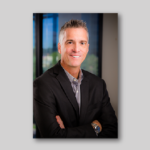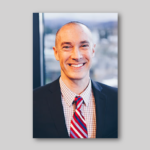Part 3 of a four-part series on how SEL and great academics support each other

In fact, if we’re really serious about creating healthy and engaging learning environments for students, we must do the same for teachers. And that starts with unburdening them of those things that aren’t critical to doing their jobs well or that could easily be done by others.
Principals, here’s a process for clearing your teachers’ plates so they can focus on creating student-centered, healthy learning environments.
- First, work together to identify what teachers must absolutely, positively do every day to support student success. What can teachers—and only teachers—do? What things, if not done well, will disrupt learning and do harm to students? This should be a fairly short list (e.g., deliver effective lessons and units, monitor learning, provide feedback and guidance, create safe learning environments). If your list feels impossibly long, you might need to force rank the items from most to least important.
- Second, list everything teachers are currently responsible for doing in their classrooms. This list will include, of course, everything on your “absolutely, positively” list, but many other items as well (e.g., take attendance, collect permission forms, mediate playground disputes, reformat lesson plans to submit to principals, lunchroom duty, etc.).
- Third, ask teachers to tally up how many minutes (or hours) per day they spend on essentials versus nonessentials. Likely, this will reveal that a significant percentage of teachers’ time is allocated to nonessential responsibilities.
- Fourth, aggressively clear nonessential activities off teachers’ plates. What duties can you shift to others, such as paraprofessionals, office staff, or maintenance staff? What superfluous activities or events can you simply strike from the calendar? What individual activities might be converted to collective activities so the burden is shared through division of labor?
Teachers are the star performers in any school or district—they are the most important variable in student performance that are within a school’s control. Yet all too often, “other duties as assigned” distract them from doing what they are hired to do—create learning environments where every student can thrive.
A football team wouldn’t ask its star players to collect tickets at the gate, nor would a movie studio ask its star actors to direct traffic in the parking lot. If we want teachers to be star performers, we ought to treat them like star performers by helping them to focus on what they (and only they) can do to support student success.
Helping teachers to be well by learning well
Once we’ve done this (and only after we’ve done this)—that is, cleared teachers’ plates enough to consider new ways of teaching and learning—should we consider asking them to embed new strategies into their practice. It’s important not to order them to do this, but rather to engage them as professionals (i.e., star performers) in developing the ability to use strategies like those we’ve identified here. And as it turns out, the very same strategies that create healthy and effective learning environments for students also apply to teachers. To wit:
- Engaging teachers in setting and monitoring goals for their own professional learning. Too often, professional learning is done to teachers instead of for or with Instead of telling teachers what they need to learn, ask them what challenges they are facing that they would like to learn how to address. Figuring out how to engage students while catching them up on interrupted learning is apt to rise to the top of the list for many—and translate easily into a goal for learning.
- Framing professional learning as structured collaborative inquiry. Curiosity is a key driver of learning for both children and adults. Thus, framing professional learning inquiry into a problem of practice is a far more respectful, engaging, and fruitful way to frame adult learning. For example, teachers might ask and investigate how to use student goal setting to support learning and well-being among students.
- Supporting peer-assisted collegial learning. No one is an island—we all learn better in groups and with peers who help us to reflect on what we’re learning and translate it to our own lives. So, provide teachers with opportunities to work together to apply, reflect, and refine what they’re learning.
- Give teachers choices and control over their professional learning. Perhaps most important, give teachers opportunities to identify for themselves which strategies are most likely to support their students and support their use (i.e., extension and application) of those strategies in their classrooms.
In the fourth and final installment, we’ll check in on Liberty Union High School District, the California district that inspired this series, and share links to resources your school may find helpful as it works to unite social-emotional and academic learning.

Pete Hall, the executive director of Education Hall, taught preK–8 in three states, then served as a principal for 12 years in three Title I schools. He’s the author or co-author of many works on teaching and learning, including McREL’s A Teachers’ Reflective Impact Journal: Pursuing Greatness Every Day, as well as the YA novel Chasing the Show.

